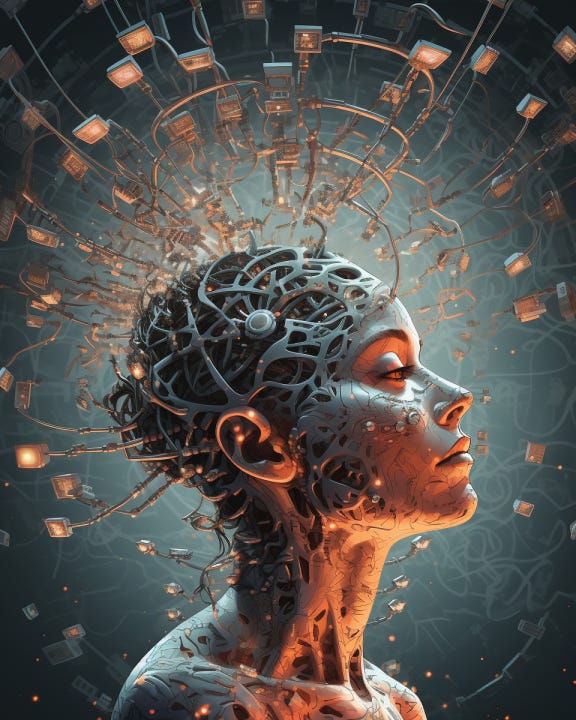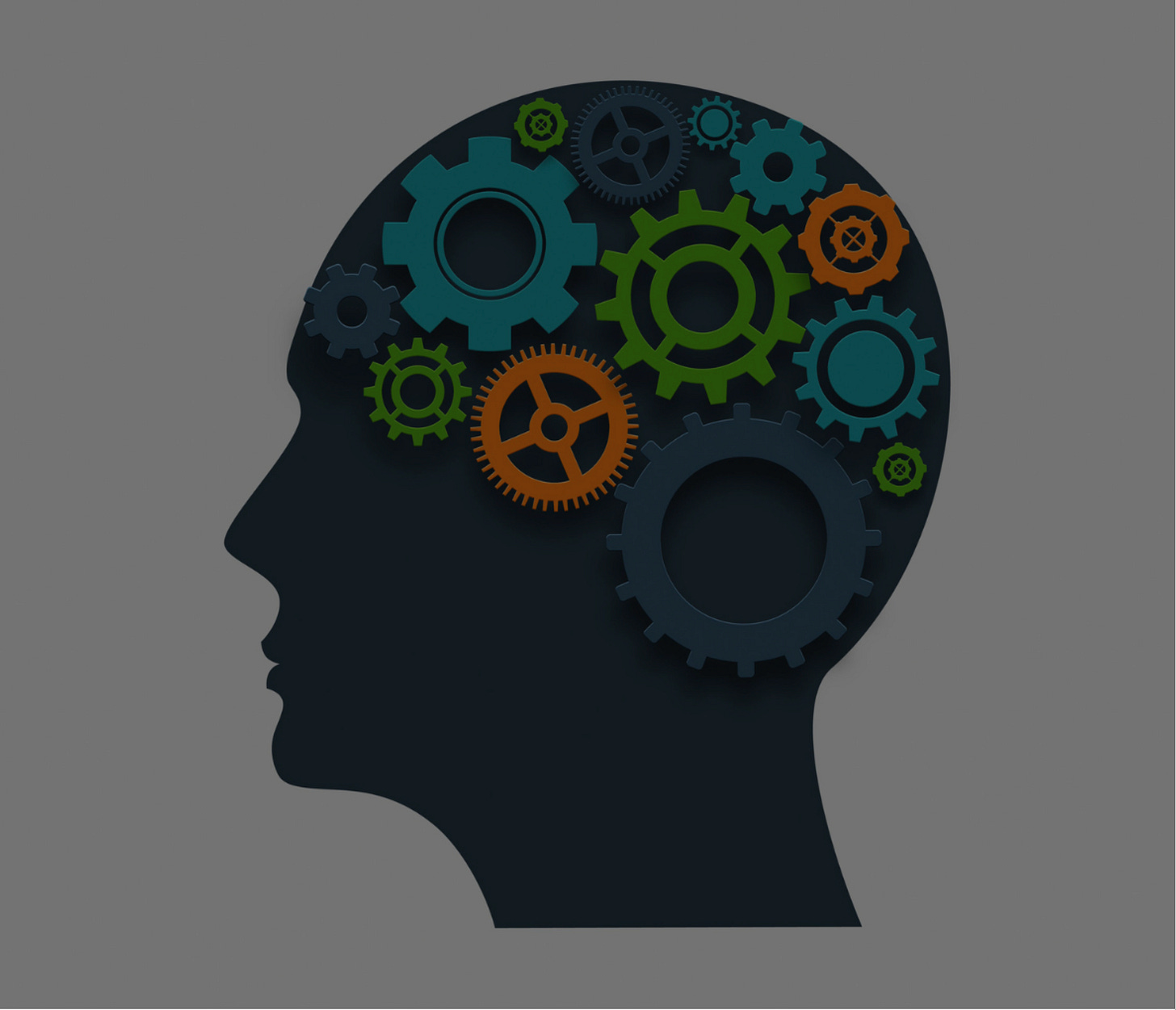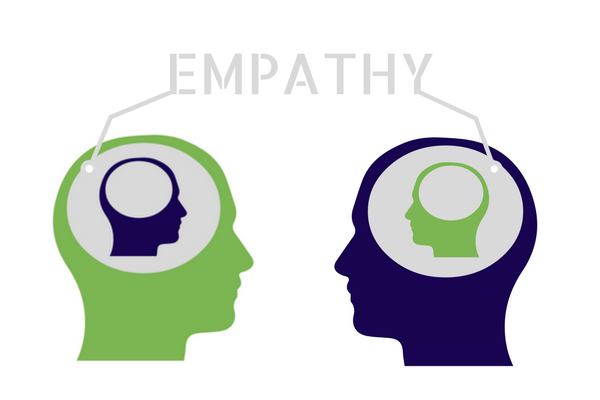Why I S.U.C.K.
Subjectivity, Uniqueness, Consciousness and Kindness
In the past couple of years, I spent a lot of time studying and thinking about consciousness. Not just because it’s the main theme in my novel “The Transcendence of Consensual Reality”, but also because it’s a fascinating subject and one—many would say the—of the biggest mysteries in science.
While consciousness—the process itself and the mechanism that leads to it—is still shrouded in mystery, most neuroscientists agree on the definition of consciousness, namely that consciousness is what it’s like to experience subjective interpretations of incoming signals. Consciousness is how you see the colour red, how rain feels when it falls on your skin, how you experience feelings like love, fear, hope and despair (and many others). As the neuroscientist Anil Seth puts it in his recent book Being You: consciousness is how it is to be you.
Therefore, it is assumed, that the way each person experiences their environment (or the world at large) is a purely subjective interpretation. Supposedly, everyone’s experience—or subsequent interpretation—of the world is unique. But is it?
Let’s look at uniqueness: colour is translated/transformed into a unique quale1. But if everybody experiences exactly the same quale (colour-blindness test when I applied for maritime engineer), how unique is it? It’s actually more unique if the translation mechanism fails—colour blindness, synæsthesia.
I personally suspect—caveat: I am not a neuroscientist nor a philosopher—that qualia are evolutionary embedded shortcuts and/or contrast enhancers. Take colour: in physical terms, colour is the frequency of reflected sunlight. And in the back of our eyes there are receptors that react to that frequency, and somehow in the nervous system2 this input is translated/interpreted/converted3 in what we call a ‘colour’.
I imagine that originally the different frequencies of reflected sunlight were represented in different shades of grey. White is the colour of the sun, black is the absence of light, and greyscales fill in both the different amounts and frequencies of light.
Then, in the ongoing evolutionary sweepstakes, beings were born where some parts of the greyscale were replaced by something that was qualitatively different from greyscale and the first shades of colour appeared.
The evolutionary advantage is that with more contrast, it’s easier to quickly perceive the environment and determine what action to take: food, fire, water, and other info. Of course, smell and sound can also help distinguish food from non-food and fiend from foe, etcetera. But sight is the sensory experience that gives the fastest impression of one’s environment, so anything that helps to enhance vision is an immediate advantage, a survival trait4. And it follows that those qualia closely matched our environment; that is, the most common light frequencies visible on Earth (the visible spectrum: a mere blip on the full electromagentic spectrum), the most common sounds (with a frequency range of approximately 20 Hz to 20 kHz), the most common smells and tastes (the chemicals producing it).
Nevertheless, while all these qualia feel unique to each of us, many tests have shown that we experience those qualia in a similar way (with exceptions like colour blindness, synæsthesia, [partial] deafness, and others). So the utmost majority of us know what the colour red looks like5. Meaning the experience, the ‘quale’ of red is not unique(*).
(*) Joke about uniqueness: superior aliens visit/invade6 Earth. Humans are inferior in any respect, so have to be put in a zoo/eliminated7. Yet one human comes forward and tells the aliens: but we are the only species to brew fantastic beer, and hands the alien a great beer. The alien tastes it and agrees it’s indeed a superior beverage. “So you need to keep us as your brewers,” the human says. The alien shrugs8, puts the beer in their molecular analyser, then feeds the results in their pico 3D printer and out comes a glass of beer just as perfect. “Thanks for the recipe,” the alien says as humanity is transported to the zoo/obliterated9.
(Now the question is: if that beer is literally copied molecule by molecule, and mixed and cooled accordingly, then is it really indistinguishable from the original beer?)
So we’re basically mostly the same, and these feelings of uniqueness are false? Well, I suspect that because we each have different bodies (with the possible exception of identical twins) and in particular different brains, the overall experience of our environment—‘being you’—will indeed be unique to each individual10.
So, since consciousness is what it means to be you, then it also is what it means to be human? This is a dangerous and interesting territory. For one, I think consciousness is not an on/off phenomenon; that is, humans are conscious and animals are not. There are gradations of consciousness, all the way from beginning sentience to what we humans experience as consciousness.
Throughout history, humans like to think that we are absolutely unique with traits that no other animal has. However, the more traits we thought were uniquely human turn out to be—after more research—also present in the animal kingdom (or a previous stage of it), so the only thing left is relentless overestimation of our own uniqueness. So what does it mean to be human? Maybe it’s living in the relentless illusion of being unique.
“But what about intelligence?” I hear some of you say. “While some animals are certainly smart, none are as intelligent as humans (on average).”
That poses the question of what is intelligence? And is it separate from (or intricately linked to) consciousness? If intelligence is merely the ability to extrapolate from the things one knows to the best action for oneself, then it amounts to nothing more than extreme scheming. I would call this ‘mindless intelligence’, the kind of endlessly gaming a system that current AIs are extremely good at (chess, go, the stock market).
Yet I think that intelligence also incorporates (or tries to incorporate) the consequences of one’s actions. Meaning true intelligence learns from past mistakes, and for that it needs to remember past mistakes. And memory is an intrinsic part of consciousness. So there’s an important link.
An intelligence decoupled from a conscience becomes a weapon of mass destruction to everything in its way as it leverages everything it can to its own survival, then dominance. But I’ll argue that this is a limited intelligence, as it does not foresee the long-term consequences of its acts. Destroying a functional ecosystem may make sense for short-term gains like greed, dominance or the will to destroy all possible competition, but it will also kill the ones highest in the ecological food chain in the long term. A bit like a superior parasite eventually killing the host.
Therefore, if an intelligence truly looks into the long term (which might be immensely difficult or impossible due to complexity and the consequences of Chaos Theory), then it might decide to become much more co-operative, much more symbiotic. This might originally have been the enlightened self-interest, from which empathy evolved.
Now, it’s hard for a species that only recently—in evolutionary time scales—arose from the Savannah to develop long-term thinking. Yet this ability to think for the long term has been a huge evolutionary advantage. Roughly speaking, it started with tool usage (one step further than short-term thinking), via the establishment of agriculture (which has a gradual and varied history all on its own, think fire stick farming before animal rearing and growing crops) to the building of housing and the rise of cities and city states. All examples of long-term thinking giving humanity an evolutionary advantage against other species.
Enter the 6 million dollar question: would that long-term thinking, that advanced intelligence be possible without consciousness? To be frank, I don’t know. Yet I find it very telling that both made huge progress at approximately the same times. It might be that emotional intelligence plays a role in this.
The fact that there is an intense bond between parents and children—mostly between mother and their children throughout evolutionary history11—is undisputed. Subsequently, is it strange to think that women who have lost a child through lack of food are intensely motivated to prevent that from happening again? Which means moving to an area with more food sources or—the idea of agriculture has had to originate from somewhere—even taking fate in your own hands and grow/cultivate the food for your future children?
In other words, if intelligence is leveraged purely for survival of the individual, it tends to become short-term centric. However, if the raising of offspring (unto the second generation, see ‘grandmothers’) becomes the next survival goal, then the subsequent intelligence also moves from the short term to the mid-term. Emotional bonds imbue intelligence with empathy. And if the mid-term intelligence pays off; that is, more children survive, then empathy becomes more embedded in intelligence.
As such, if an intelligence with an inherent empathic component delivers better results than an intelligence only aimed at individual survival, then that intelligence becomes the norm12.
Simultaneously, consciousness continued to develop. I think it’s safe to say that sentience has been present in life—and especially in fauna—from almost the very beginning. Consciousness does not jump into existence out of nothing, but is preceded by sentience. So when does sentence become consciousness? It all depends on the definition of these subjects. Sentience is often defined as ‘the ability to perceive or feel things’, while consciousness—according to neuroscientist prof. Anil Seth is ‘something it is like to be’ or, ‘how it is like to be you13’ (as also mentioned above).
This seems to say that going from sentience to consciousness means that a species moves from feeling and perceiving their environment to realising there is an individual that is feeling and perceiving this information from their environment. The self comes into play. The general point of observation becomes a subjective point of observation. Or, possibly better worded: the non-conscious experience14 becomes a subjective experience.
This very subjectivity—I’ll argue—not only helps us recognise ourselves, but also helps us recognise, and subsequently empathise with, the other. Initially, this other is someone from our own species: a partner, a child, a parent. Yet—as argued above—this very strong mother-child bond—which was already embedded when species were sentient—becomes even stronger, because now it’s not just instinct embedded through evolution, but also empathy because now the mother recognises how the child feels when it’s hungry or otherwise suffering. Which in its turn motivates the mother(s) even more, leading the way to empathic intelligence.
So I strongly suspect that higher intelligence and consciousness evolved together. Does that mean that consciousness and intelligence are intricately linked? I’d say that empathic intelligence—intelligence that encompasses ethics—is strongly linked to consciousness. But that does not rule out that there are other forms of intelligence that are less strongly, or even completely independent of consciousness. If these other forms of intelligence are superior to intelligence with ethics is the next 6 million dollar question.
Concluding: this brings us back to the title of this essay: “Why I S.U.C.K.” We are a strange mix of Subjectivity, Uniqueness, Consciousness and Kindness15. Is this what makes us human? I suspect a certain amount of humility would help, as well, before we might be ready to take the next step forward.
Author’s note: there will be more essays about consciousness, but not in neat series of three, mostly because my opinion of it is still very much in flux. Partly those essay will be mild spoilers of my novel “The Three Reflectors of Consensual Reality16”, partly my ongoing musings and explorations of it. Thanks for your patience and thanks for reading and a special welcome to the new subscribers!
I have a little hypothesis in how qualia came to be, in my upcoming novel “The Three Reflectors of Consensual Reality”;
Note that I view the brain as part of the nervous system;
I’m struggling to find the most apt word here;
Quite probably many qualia developed in sync; that is colours developed alongside smells, taste and sound, often reinforcing each other;
Even if some can distinguish more shades of a colour. There are reports of women who can distinguish millions of different shades of colours;
Choose according to your level of cynicism;
Ibid;
Or whatever gesture counts as a shrug with them;
You know what to do;
The song “Red Lenses” by Rush (from the album Grace Under Pressure) is an excellent example how the same colour can be experienced in many different ways;
See also Cat Bohannon’s upcoming (October 12) “How the Female Body Drove 200 Million Years of Evolution”;
With the caveat that sociopathic intelligence is still around, unfortunately, as evolution likes to hedge its bets;
Hence the title of his latest book “Being You”;
Which is better than ‘general’ or ‘objective’;
Unfortunately, as mentioned, there are sociopathic exceptions;
Which I intend to serialise on this Substack in 2025 if I can’t place it;






